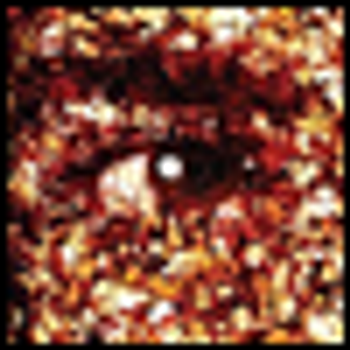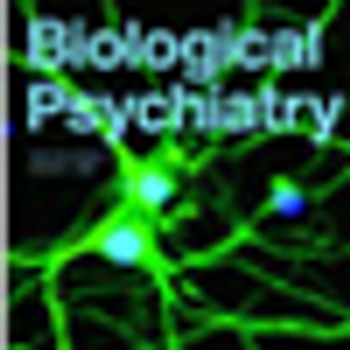
This psychiatrist was not prepared for the scope of impact our two long wars have had on military children.

This psychiatrist was not prepared for the scope of impact our two long wars have had on military children.

A new CDC study based on a large survey of the general population reveals the following alarming results.

On the BSDS what score range indicates that there is a moderate probability of bipolar spectrum disorder? During euthymia, bipolar patients may have chronic impulsivity that predisposes them to aggression-especially those with comorbid features of which disorder? These questions and more in this quiz.

Psychotic episodes are devastating for the individuals who have them, their friends, and families. Wouldn’t it be wonderful if individuals could receive treatment before the first psychotic episode strikes, so that it could be avoided altogether?

Just a few days ago, 3 divisions of the American Psychological Association posted a well crafted open letter spelling out the many risks posed by DSM-5 and inviting mental health professionals to sign a petition requesting much needed changes. You can see the letter and (if you agree with it) sign the petition at http://www.ipetitions.com/petition/dsm5/

Several divisions of the American Psychological Association have just written an open letter highly critical of DSM-5.They are inviting mental health professionals and mental health organizations to sign a petition addressed to the DSM-5 Task Force of the American Psychiatric Association. You can read the letter and sign up at http://www.ipetitions.com/petition/dsm5/. It is an extremely detailed, thoughtful, and well written statement that deserves your attention and support.

The mental health professions are currently awaiting the American Psychiatric Association’s newest version of the Diagnostic and Statistical Manual. The need for a fifth revision underscores the lack of satisfaction within the professions with our diagnostic schema

The American Medical Association: Some say it's obsolete. Who speaks for physicians these days? What's your opinion?

My introduction to the works of Dr Z followed shortly AFTER my own humiliation. My patient had just stormed out of the interview and informed me that I would never pass the medical boards with my apparently egregious neglect of her needs. My supervisor gave me a smile and said, “You might have done better if you approached the patient like Dr Z suggests.

Who speaks for doctors these days? The answer was simple 100 years ago. The AMA spoke for the nation’s physicians and concurrently spoke to the nation’s desire for quality healthcare. . . .Today, fewer than 20% of physicians are AMA members.

When I was a first-year resident, a revered supervisor of mine made the statement-half-facetiously-that, “In psychiatry, you can do biology in the morning and theology in the afternoon!”

A recent study concluded that depression is associated with a significantly increased risk of stroke morbidity and mortality.


resident's corner blogger

Despite its caveats and good intentions, the AAP guideline will surely invite an inappropriate glut of medication for preschoolers . . .

In Part 3 of this 3-part series, Dr Dilsaver discusses dichotomization versus a continuum model and concerns that bipolar disorders are over-diagnosed.

A recent front page story by Shari Roan in the Los Angeles Times explores the heated controversy over the DSM-5 proposal to include a Disruptive Mood Dysregulation Disorder (DMDD) in DSM-5. I very much oppose the inclusion of this new "disorder."

Below is an editorial (with the above title) taken from the newsletter of the Society of Biological Psychiatry and written by its editor Stephen M. Strakowski MD.

The misdiagnosis of rape as a mental disorder has been a forensic disaster-allowing the widespread misuse of involuntary psychiatric hospitalization to facilitate a form of questionably constitutional preventive detention. Fortunately, there is now considerable hope that this sad episode will soon come to a much needed end.

I do not hear loud applause for our current antidepressant armamentarium. I believe I hear the sound of one hand clapping.

I have previously framed a series of questions inviting Professor McGorry to state clearly his current positions on: the accuracy and suitability of attempting to predict psychosis; the types of preventive interventions that he believes are indicated and those (perhaps antipsychotics) that clearly are not . . .

A meta-analysis of the Omega-3 fatty acid EPA (eicosapentaenoic acid) as therapeutic supplement for major depression followed the above study online September 6 in the Journal of Clinical Psychiatry.

"I'm all over it, because I'm looking for something to help," declared Army Vice-Chief of Staff General Peter W. Chiarelli, quoted in USA Today News September 20, in his response to a study finding an increased risk of suicide in US military personnel with low Omega-3 fatty acid serum levels.

Custody disputes often produce anxiety for all involved. Whether you are a treating child psychiatrist or custody evaluator, it is imperative to have a clear idea of your role.

With all the justifiable concerns about our next DSM, I frankly have more concerns about treatment. After all, diagnosing is really most important as far as it leads to the necessary treatment to help the patient.

Substance use disorders are associated with significant morbidity and mortality that affects individuals and their families. Preventing the onset of an SUD in adolescence remains a critical area of clinical and public health significance.

Freedman, Forman and Nelsen bloggers

The diagnosis of T1DM can be devastating to both the child and family. Because of the potential for immediate life-threatening complications of poorly controlled diabetes, family members must readjust their approach to daily living.

A depot antipsychotic regimen is less likely to be discontinued than an oral dosage form . . .

Increased activity of the enzyme phospholipase A2 (PLA2) has been documented in schizophrenia and is now reported to occur in patients with temporal lobe epilepsy . . .